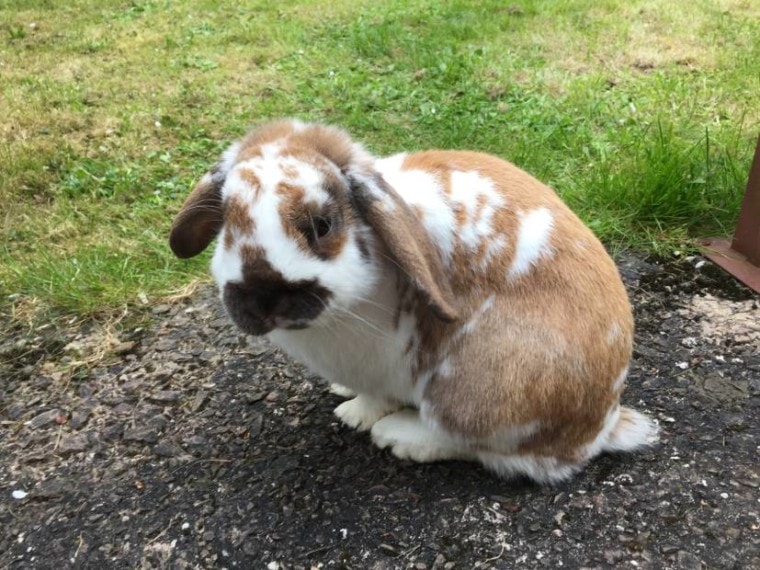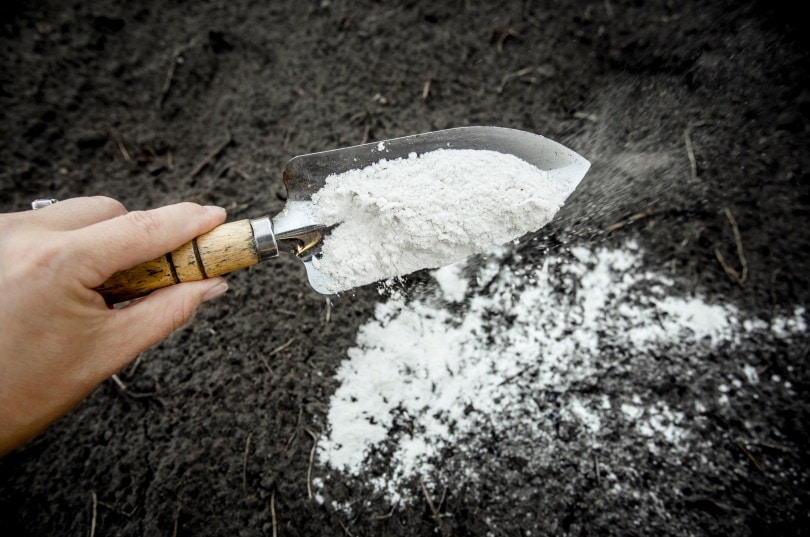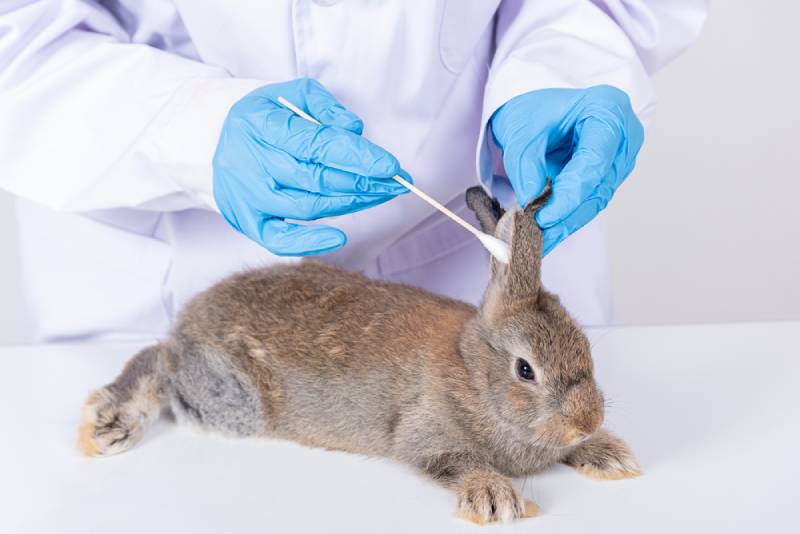
If you take your rabbit out for free time on your grass or if your outdoor rabbit hutch extends to part of your garden, the rabbit odor from their strong urine can cause patches of grass to become smelly. When it comes to neutralizing rabbit urine on grass, you want to choose a method that is not only safe for your rabbits but will also not damage the grass.
Rabbit urine is particularly potent and contains a high concentration of ammonia. Males typically smell worse than female rabbits, and unneutered males may have smellier urine due to the hormone surges that occur during mating season.
In this article, we have compiled a list of some tips to help neutralize the foul odor rabbits can leave behind on grass that might work for you!
The 4 Top Ways to Neutralize Rabbit Urine on Grass
1. Gypsum
Although gypsum cannot neutralize excess nitrogen in urine, it can improve the soil drainage in the grass which will help prevent the rabbit urine from collecting near the roots of the grass. Gypsum is a natural mineral that is not lethal to pets, however, the dust particles may be an irritant which is why this method should be used outdoors so that your rabbit is not exposed to the excess dust. This mineral can also help to improve the quality of the soil which can help prevent the grass from browning.
2. Lime
Lime can help maintain a neutral pH balance in the urine which can help to neutralize any odors. Barn lime can be used and it is mostly calcium, so it is fairly harmless to animals if it is inhaled. It is important to use barn lime that does not contain an insecticide, and in some cases, plain lime can be used and squeezed over the areas your rabbit has urinated on. It rarely damages plants and grass and can be diluted with a small portion of water and sprayed onto affected areas.

3. Apple Cider Vinegar and Water
Apple cider vinegar is not as strong as white vinegar, especially if it has been diluted with water, which makes it less likely to kill the grass from the root system. It is non-toxic to rabbits and can be a great cleaning solution. When sprayed on grass that has accumulated a lot of rabbit urine, a solution of water and apple cider vinegar can be used to help neutralize the ammonia smell of the urine by breaking it down.
Avoid spraying undiluted apple cider vinegar directly on the grass as it can cause the patch of grass the further die off, but diluted apple cider vinegar is not strong enough to damage the grasses roots.
4. Saturate The Area With Water
In some cases, fully saturating the area with rabbit urine on the grass with a hosepipe or bucket of water can help dilute and push the urine down into the soil. It is recommended to take your rabbits inside or place them in their outdoor hutch while the grass and soil are drying so they do not get wet. This method can be used frequently because no chemicals are needed, and if you water down the urine spot on the grass every few days, it can help to prevent the urine from accumulating in the grass patch and damaging the roots.

Why Does Rabbit Urine Kill Grass?
Rabbit urine is highly acidic, so can kill off patches of grass in the places the rabbit has urinated on a lot. The high levels of ammonia in rabbit urine can also cause the soil to become more acidic, which puts stress on the grass and burns its roots. This is why it is common to find that areas, where rabbit urine is most potent, have grass that has become brown and dry.
 Summary
Summary
It is best to provide your rabbits with a litter box or pan and to litterbox train them. This can help prevent them from urinating in the grass because they will be drawn to the litter box. It is important to work quickly when you notice that your rabbit has urinated on the grass. After all, once they smell a place where they have recently urinated, they might go back to that place and use it again because they recognize their scent.
This makes it important to use methods that will help to neutralize the odor while also preventing them from urinating in the area again which can damage the grass over time. Enzymatic cleaners can be a great way to do this.
Featured Image Credit: Mike Andreou, Shutterstock









